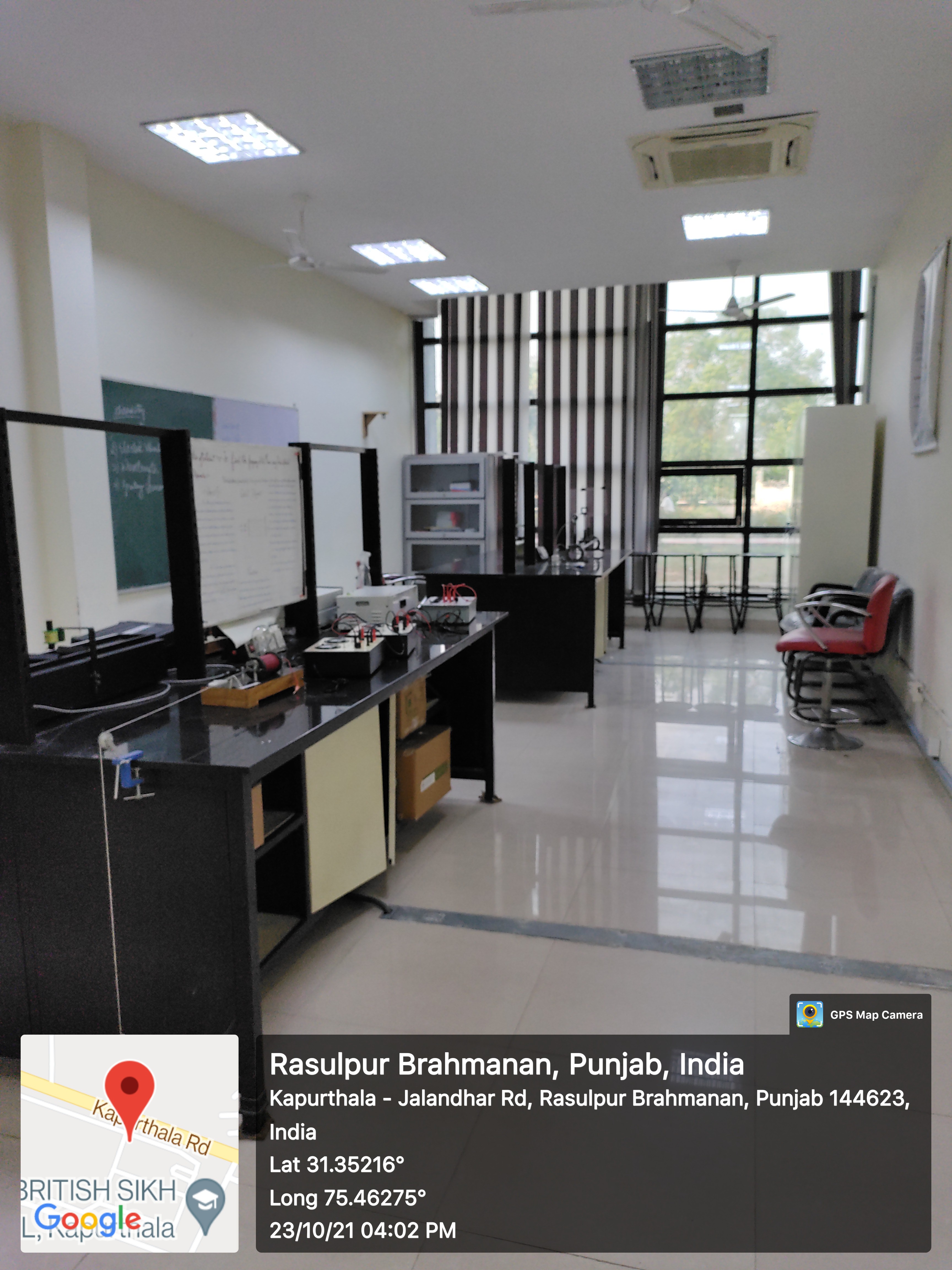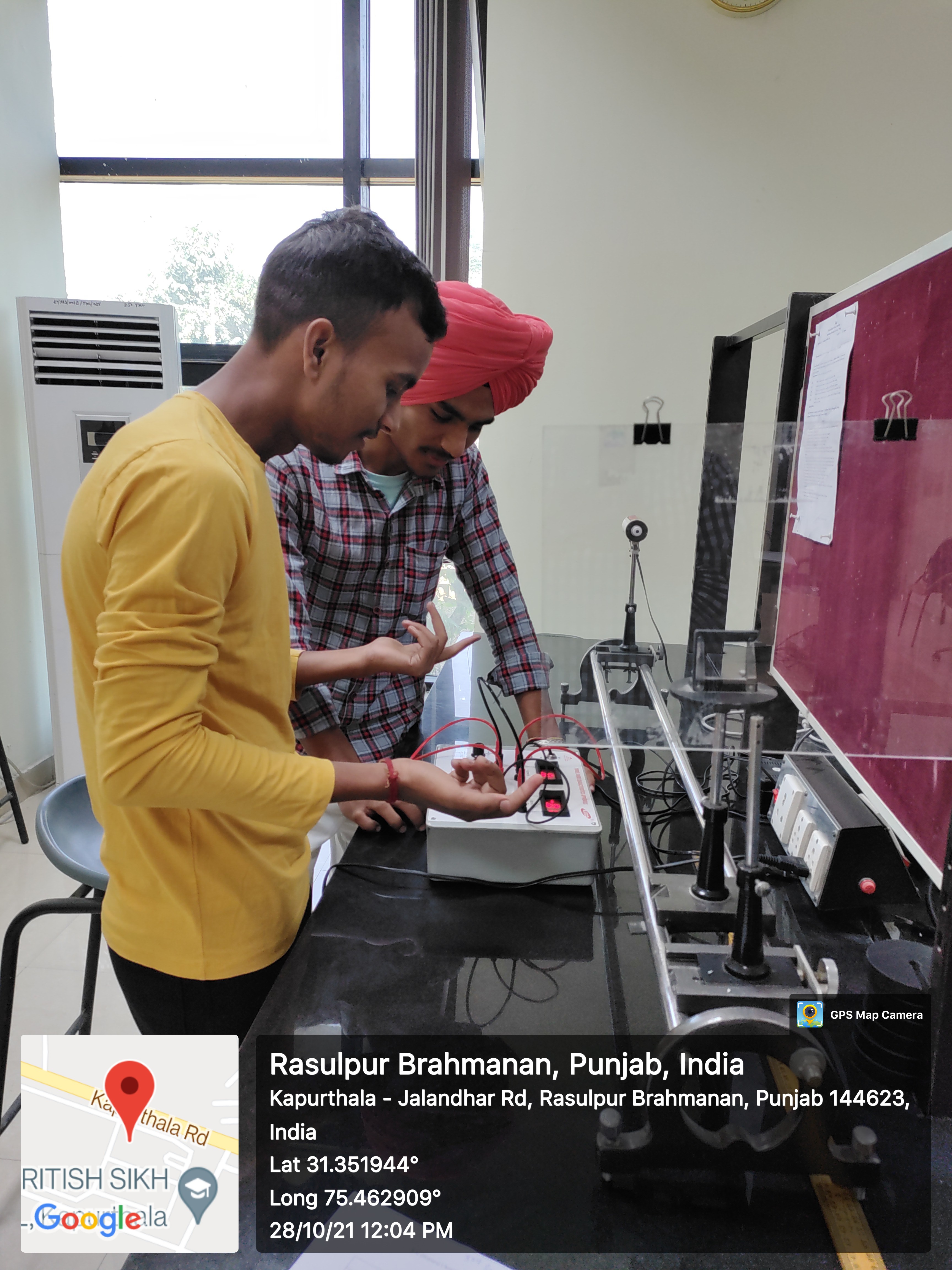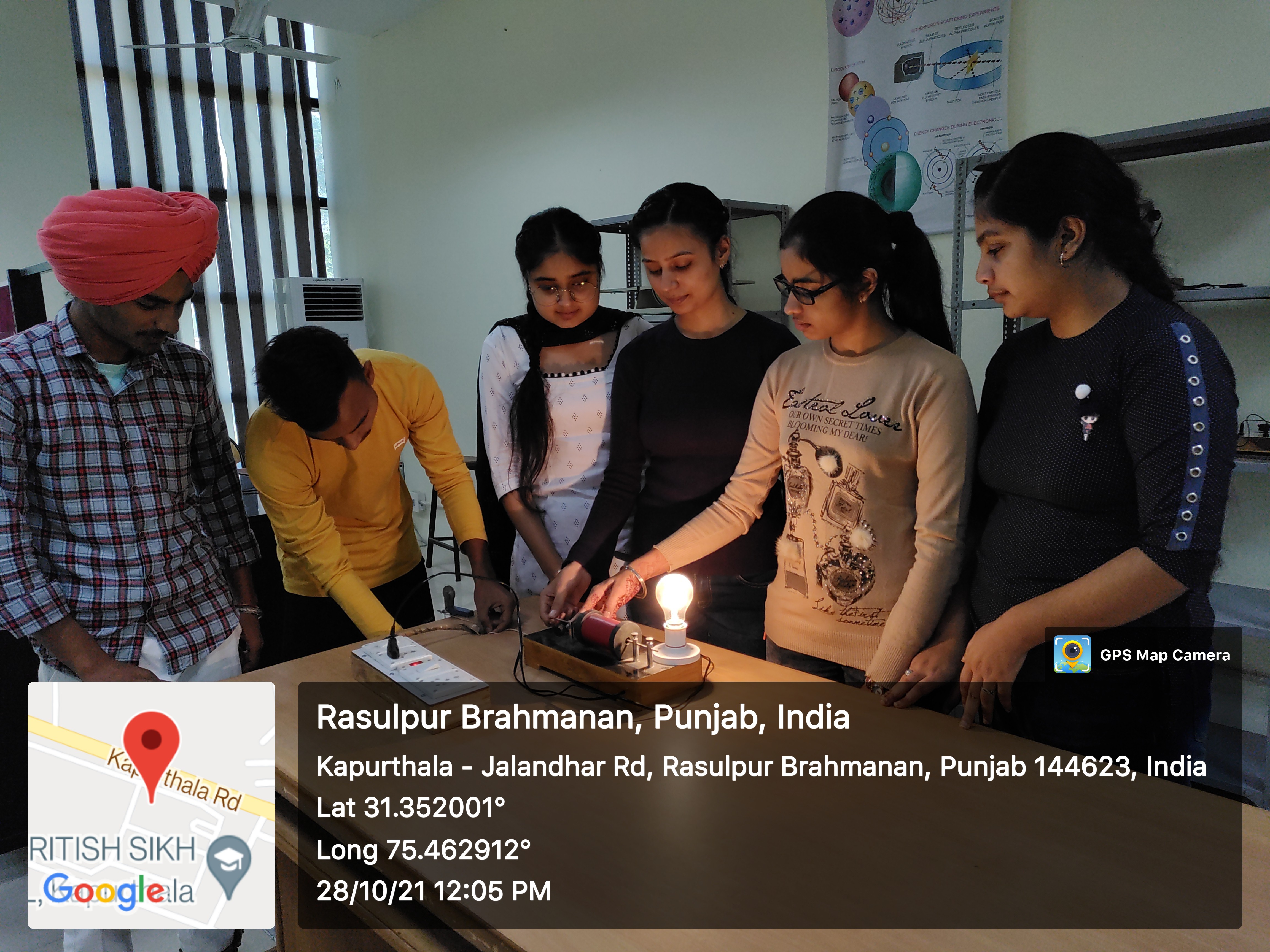Department of Physics has well equipped advanced electronics laboratory as a part of M. Sc. Physics curriculum. The aim is to provide the knowledge of basic concepts & operation of electronic devices & circuits. We encourage the students to build their circuits on breadboard using electronic components, ICs, power supplies, and other electronic equipment. It also provides logic level realization of different digital circuit such as logic gates, flip-flops, counters, registers, multiplexers, de-multiplexers etc. This laboratory enables our students to learn prototyping, soldering wiring and testing their own circuits.
Major equipment:
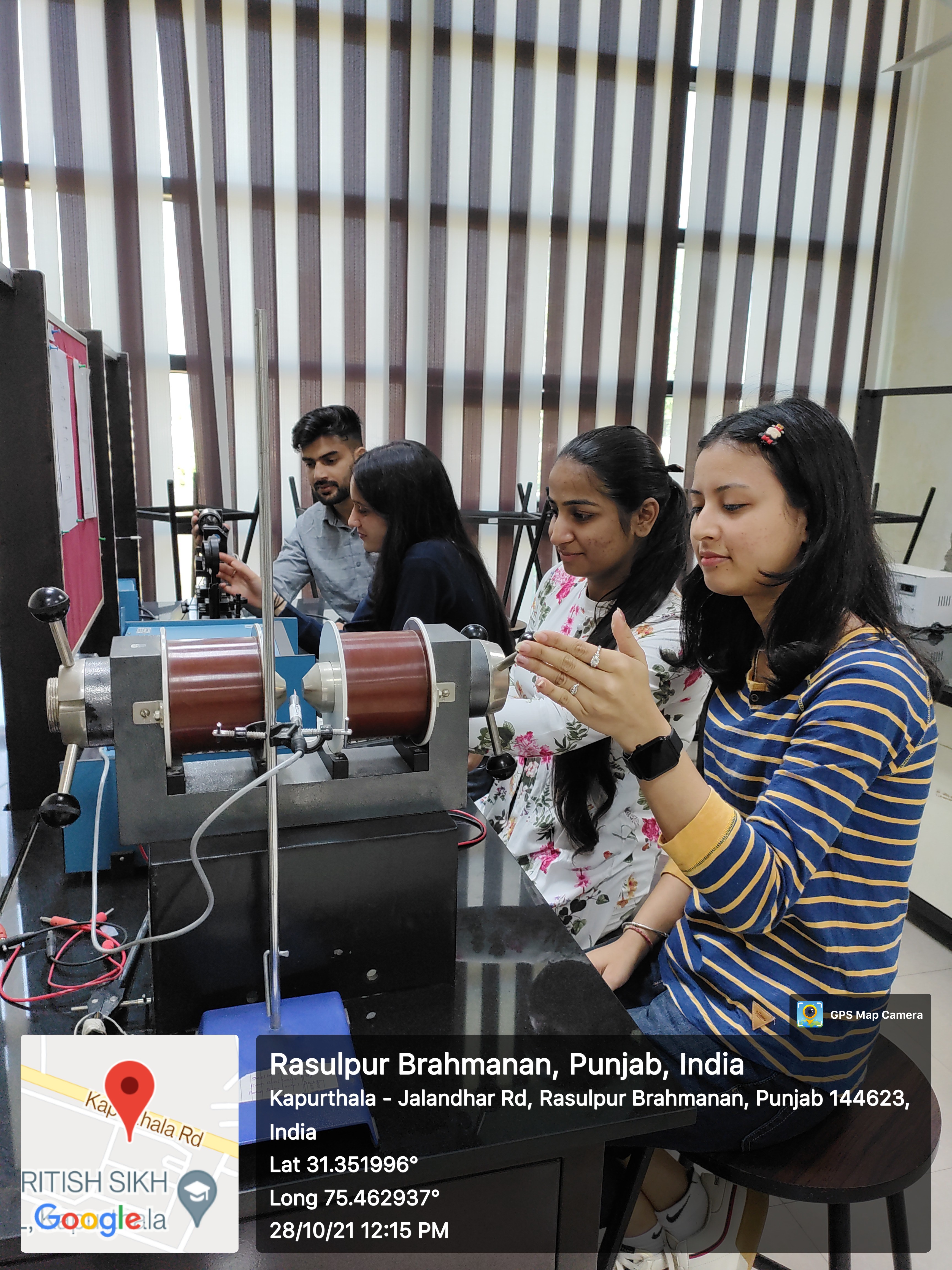
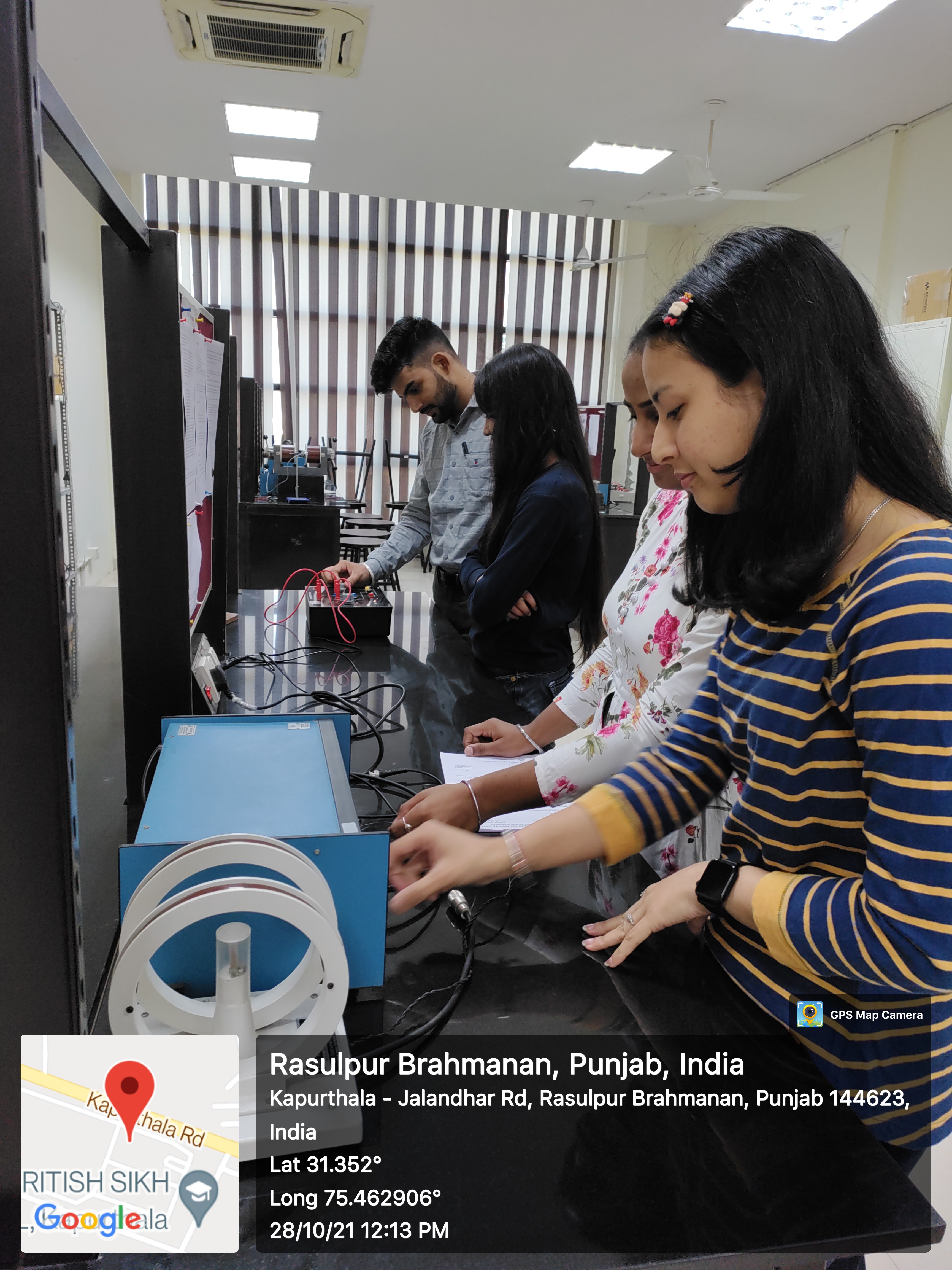
Atomic physics is the study of atoms as an isolated system of electrons and an atomic nucleus, molecular physics is the study of the physical properties of molecules, while nuclear physics considers atomic nuclei alone. In this lab we focus on the applications of emission, absorption, scattering of electromagnetic radiation (light) from excited atoms and molecules, analysis of spectroscopy, lasers and masers, and the optical properties of matter in general, in this lab. In Nuclear physics, we focus on experiments on G.M. counter and detector and Scintillator counter etc.
Major Equipment:
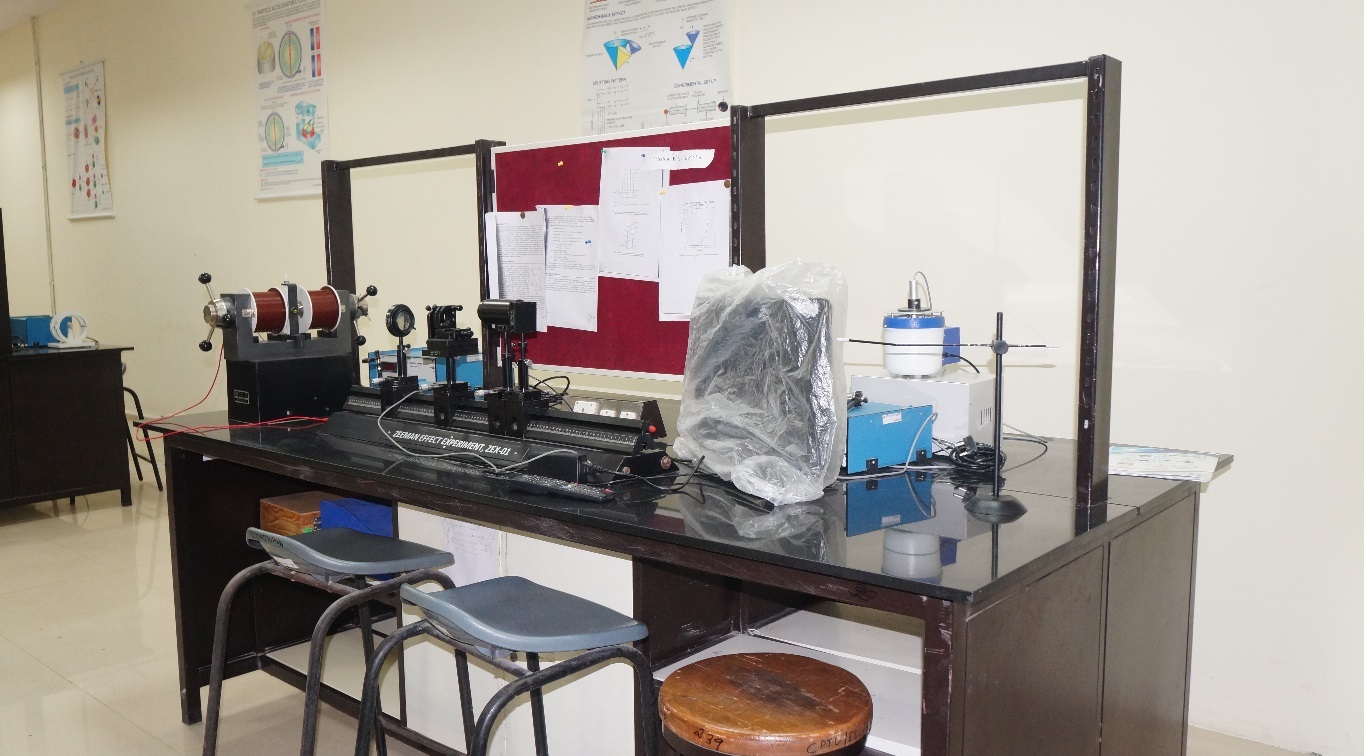
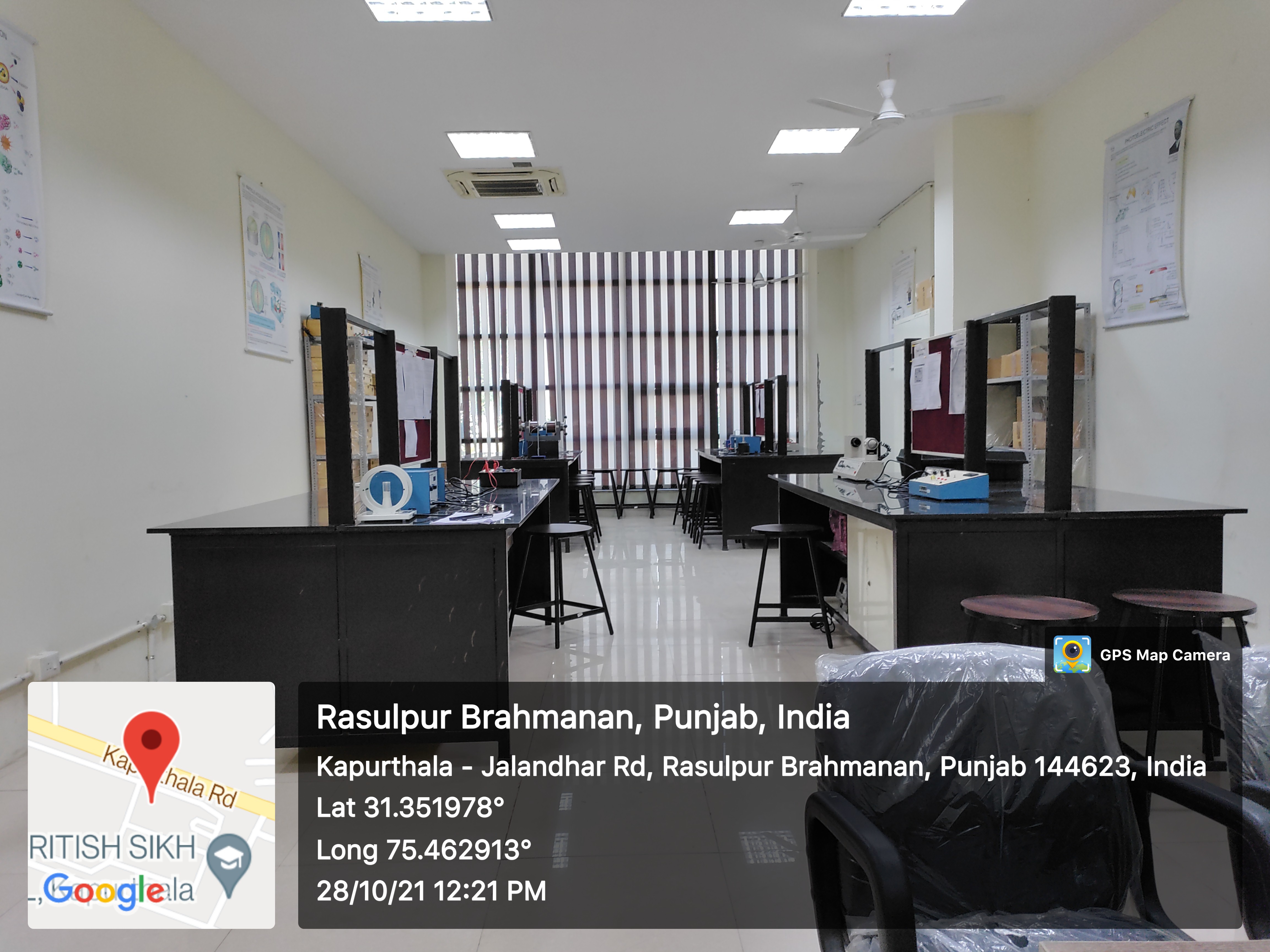
Four probe method, curie-weiss law for the electrical susceptibility, charge carrier density and Hall coefficient by Hall effect, Quink ‘s tube method, dielectric constant of a material with Microwave set up, velocity of ultrasonic wave in liquids, Lattice dynamic kit, X-Ray Apparatus.
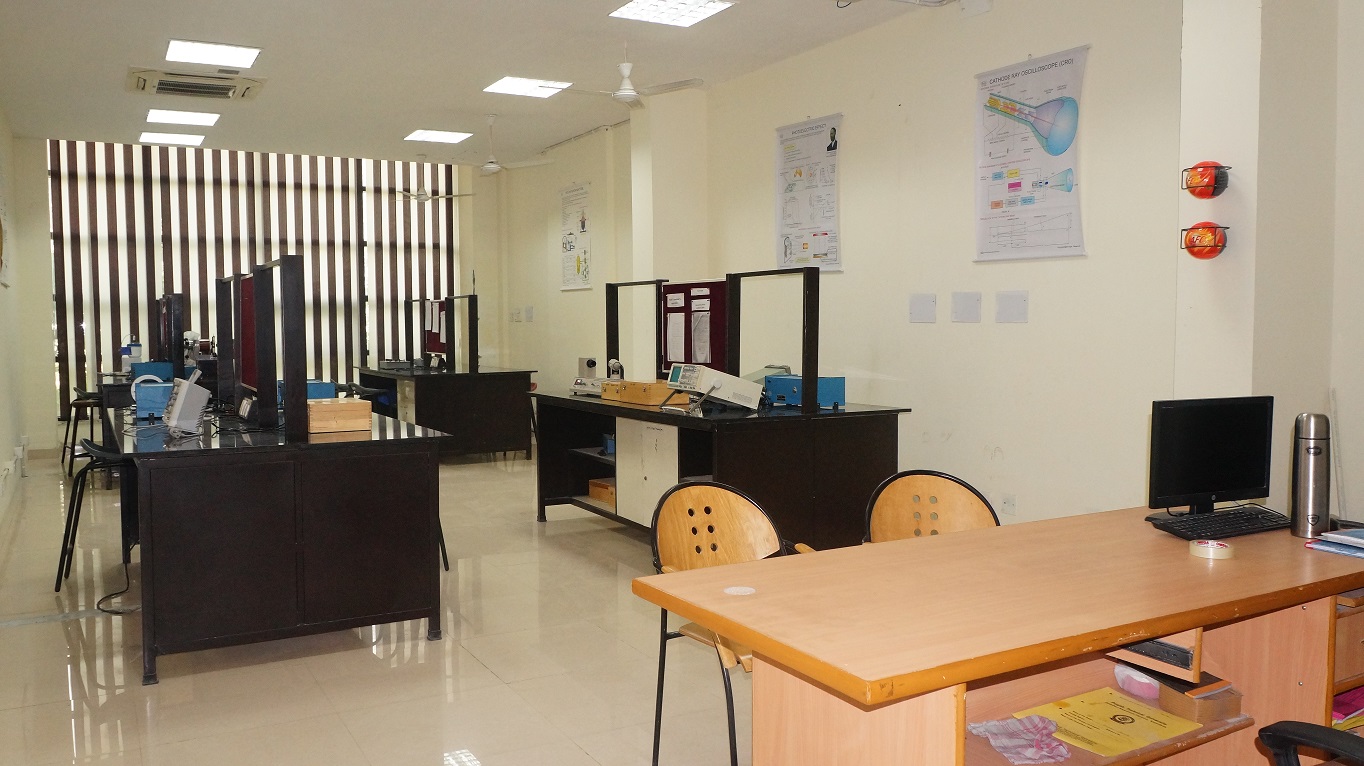
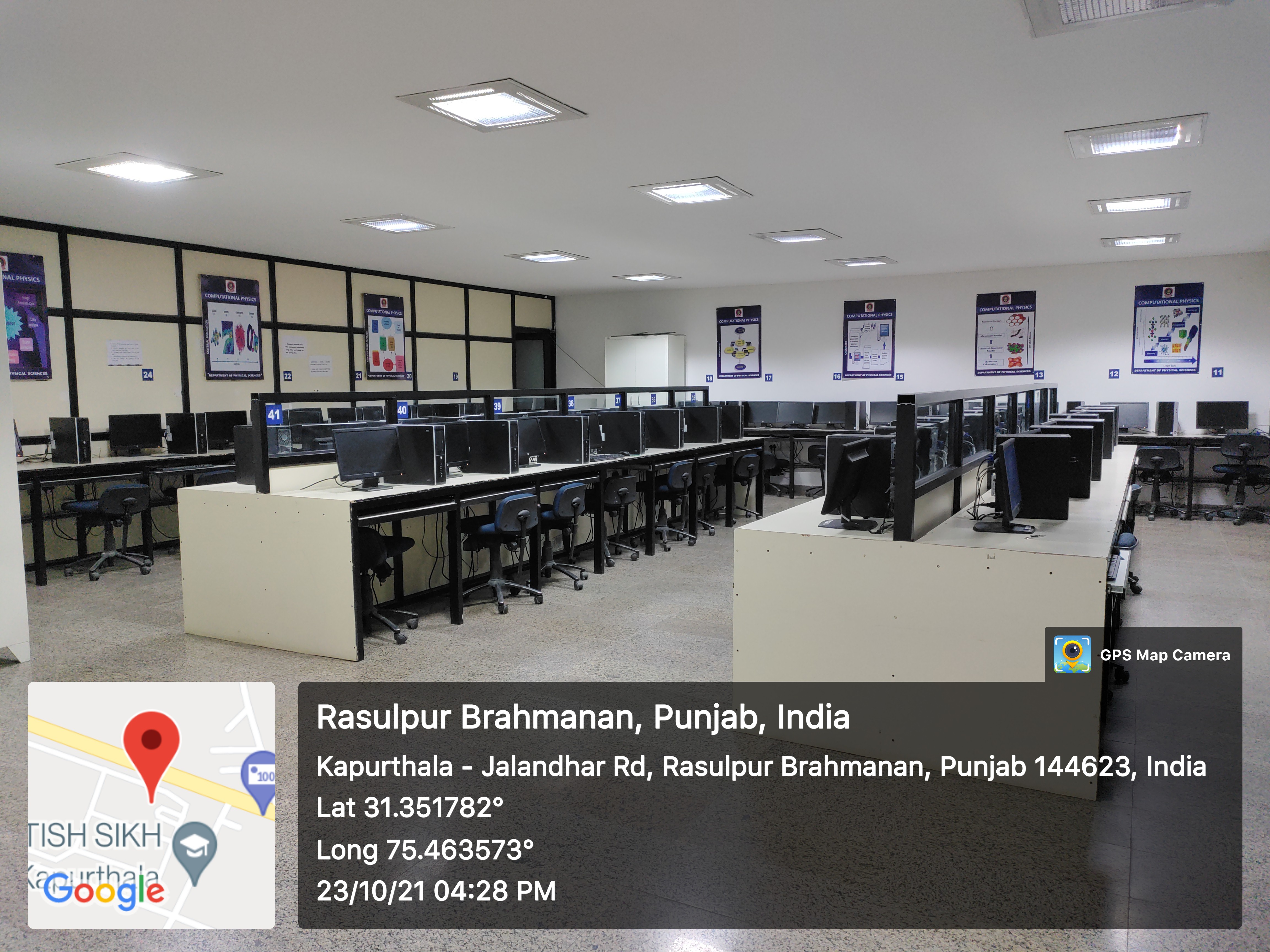
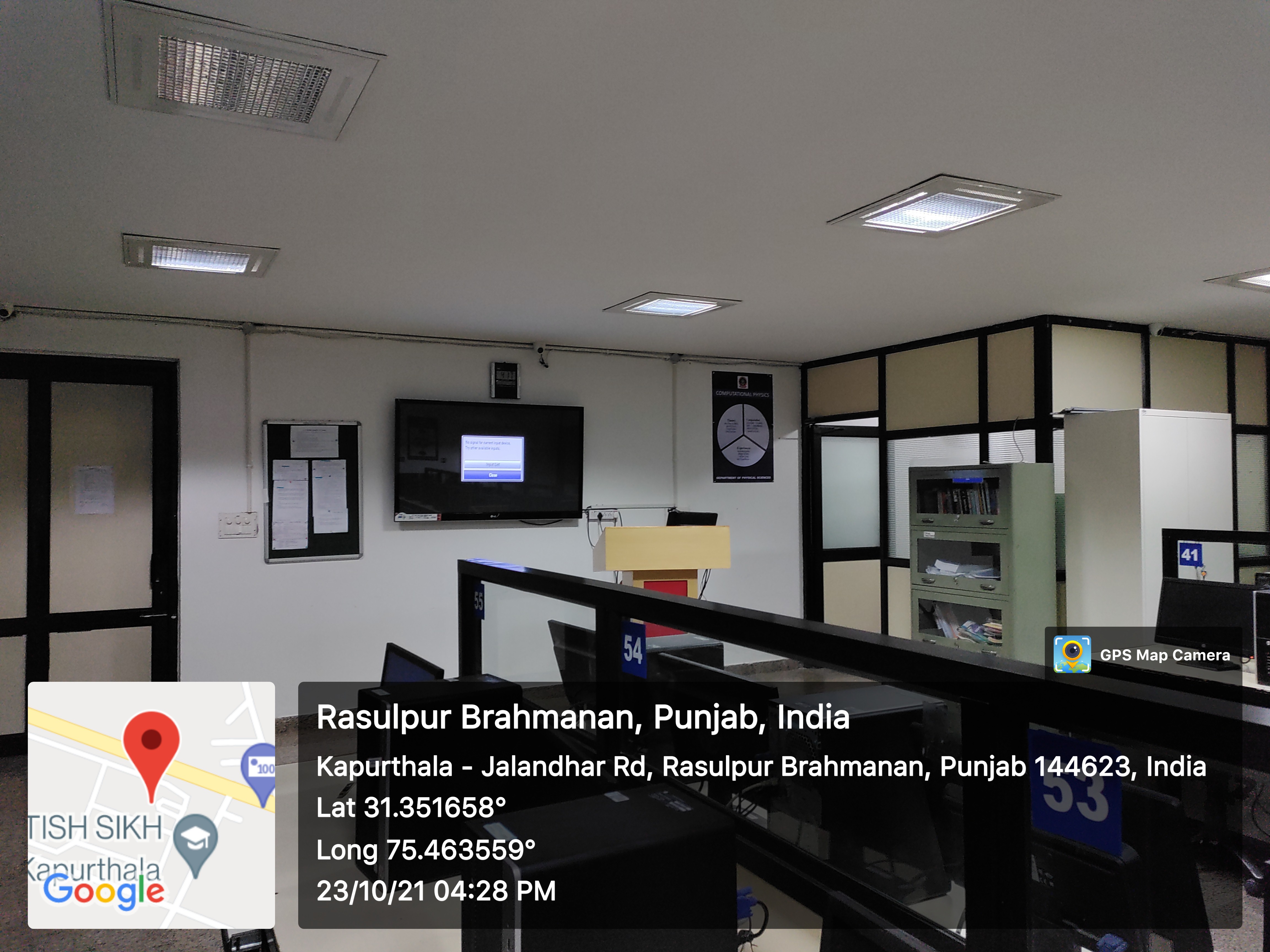
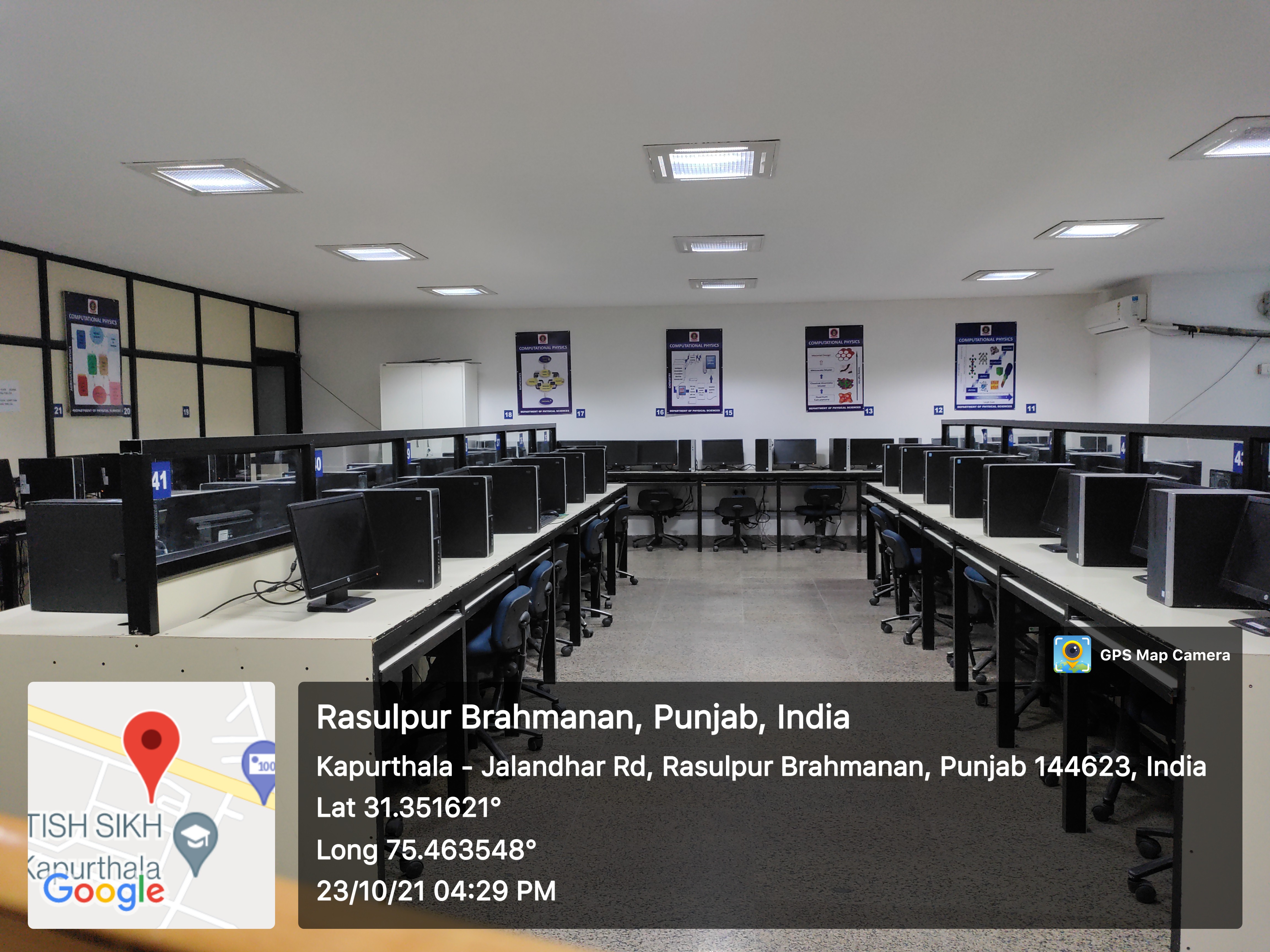
Some important Physics Lab equipment includes:
